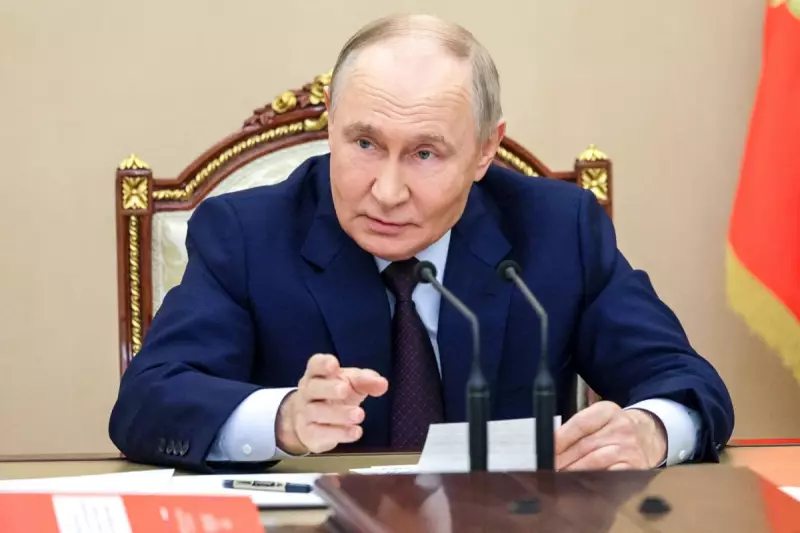
Vladimir Putin has dramatically escalated his nuclear rhetoric amid fierce fighting in eastern Ukraine, while former US President Donald Trump's controversial comments about NATO continue to reverberate through international diplomatic circles.
Nuclear Sabre-Rattling Intensifies
Russian officials have issued their most explicit nuclear warnings to date, with former president Dmitry Medvedev declaring that Moscow could be forced to use nuclear weapons if Ukrainian forces push back Russian troops to borders recognised in 1991. This represents a significant hardening of Russia's nuclear posture as the conflict approaches its third year.
The chilling statement came as Russian forces launched a devastating attack on Pokrovsk, a key frontline city in the Donetsk region. Local authorities reported multiple casualties with rescue operations continuing through the night.
Trump's NATO Comments Send Shockwaves
Meanwhile, Donald Trump's suggestion that he would encourage Russia to do "whatever the hell they want" to NATO members who fail to meet defence spending targets has created turmoil among Western allies. The comments, made during a campaign rally, have raised serious questions about the future of the military alliance should Trump return to the White House.
European leaders have expressed alarm at the prospect of weakened US commitment to NATO's collective defence principle, with some calling for accelerated plans for European strategic autonomy.
Frontline Reality: The Battle for Pokrovsk
On the ground in eastern Ukraine, the situation remains dire. The attack on Pokrovsk involved multiple strikes, causing extensive damage to residential buildings and critical infrastructure. Emergency services worked tirelessly to extract survivors from the rubble as local hospitals prepared for an influx of casualties.
Ukrainian military officials report that Russian forces are concentrating their efforts on breaking through defensive lines in the Donetsk region, with Pokrovsk becoming a focal point of the intensified offensive.
International Response and Diplomatic Fallout
The combination of Russia's nuclear threats and Trump's NATO comments has created what one European diplomat called "the most dangerous geopolitical moment since the Cuban Missile Crisis." Western capitals are urgently reviewing contingency plans while attempting to maintain a united front against Russian aggression.
As the US presidential election approaches, the future of Western support for Ukraine hangs in the balance, with potential implications for European security that could reshape the continent's defence architecture for generations to come.





